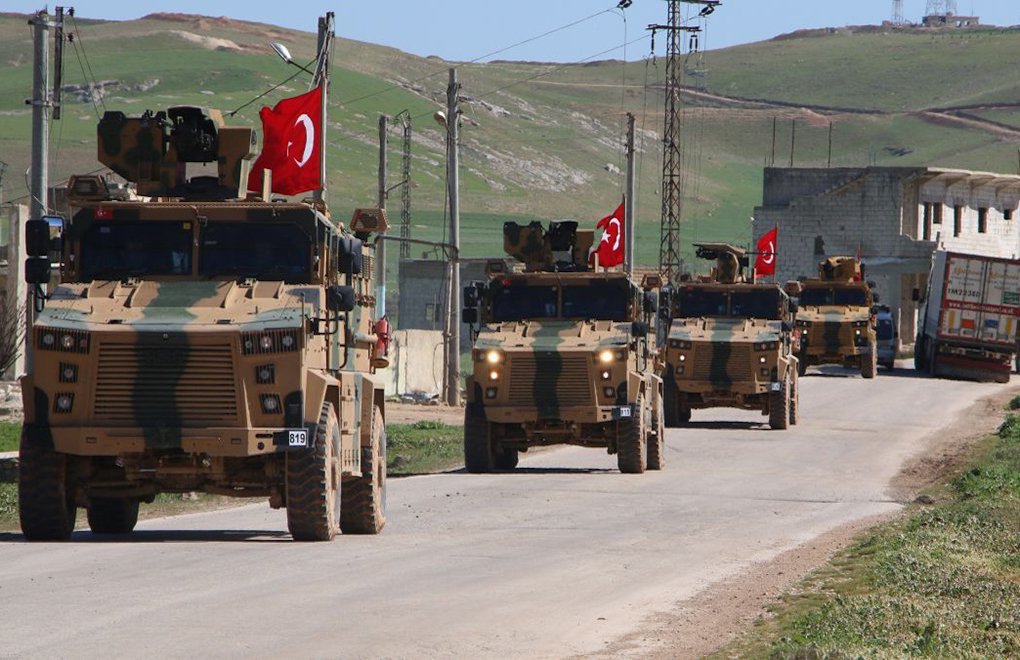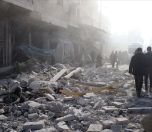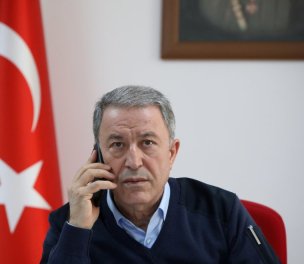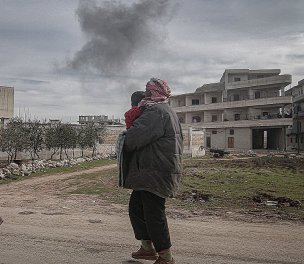* Photo: Anadolu Agency (AA) - Archive
Click to read the article in Turkish / Kurdish
Human Rights Watch (HRW) published an analysis today (February 3) and announced that the authorities from Turkey and the Syrian National Army arrested Syrian nationals, both Arabs and Kurds, between October and December 2019 in Ras al-Ayn (Serekaniye), in northeast Syria, after Turkey took effective control of the area following its incursion into northern Syria.
HRW said, "Turkey and the Syrian National Army have arrested and illegally transferred at least 63 Syrian nationals from northeast Syria to Turkey to face trial on serious charges that could lead to life in prison."
According to the organization's analysis, the documents obtained by the HRW show that the detainees were arrested in Syria and transferred to Turkey in violation of Turkey's obligations under the Fourth Geneva Convention as an occupying power in northeast Syria.
Documents
The HRW analysis of the issue briefly reads as follows:
"Human Rights Watch was able to obtain and review about 4,700 pages of official Turkish case file documents pertaining to the arrest of the 63 Syrian nationals in Syria.
"The documents include transfer and interrogation records, bills of indictment, and police and medical reports obtained from lawyers and the Kurdish Committee for Human Rights-Observer, a group helping the detainees.
"Human Rights Watch also interviewed six immediate relatives of eight of the detainees – five of whose papers were included among the case files – as well as two of the detainees' lawyers.
"Other evidence and published reports from other groups suggest that the actual number of Syrians illegally transferred to Turkey could be almost 200. Reports in pro-government Turkish news sources refer to recently detained Syrian nationals who have been transferred to Turkey, indicating that the practice persists.
Charges
"The official Turkish files in these cases show that the charges include undermining the unity and territorial integrity of the state, membership in a terrorist organization, and murder.
"The charges are based mainly on unsubstantiated claims that the detainees have links with the People's Protection Units, (known by its abbreviation YPG), the armed wing of the Kurdish-led Democratic Union Party (PYD) in northeast Syria.
"The Turkish government and courts regard the PYD and YPG as one and the same, and closely linked to the armed Kurdistan Workers' Party (PKK) with which Turkey has been in a decades' long conflict in Turkey.
"A Human Rights Watch review of the documents shows that in most cases, the Turkish authorities have not produced evidence that the detainees were active fighters with the Kurdish-led authorities or that they committed crimes. Family members and relatives said that those detained held administrative or low-level roles within the party.
What do the families say?
"Family members who witnessed their relatives' arrests said that at around 1 p.m. on October 14, 2019, an armed group affiliated with the Turkish-backed Syrian National Army raided the homes of 15 men, detained them, and took them to the Syrian town of Mabrouka.
"Detainees' families said that they then lost contact with the men and it was at least a month and a half before they found out that the detainees had been transferred to a prison in Şanlıurfa province, Turkey.
"Under Turkish regulations, family members need a phone number registered in Turkey to contact their detained relatives, but as of December 2020, two families still had not been able to make direct contact with their loved ones.
Indictment
"In the pro-forma indictments reviewed by Human Rights Watch, Turkish prosecutorial authorities cite the location of the crime as Şanlıurfa, Turkey, but the detailed reporting, including some transfer documents, reveal that any alleged misconduct would have taken place in Syria. The records, including several detainees' statements to the prosecutor, show that detainees were arrested in Syria and then transferred to Turkey.
"While the indictments claim that everyone captured was a fighter with the People's Protection Units (the YPG), in most cases, the case documents provide no evidence to back this claim. In the few cases in which evidence was provided, it consists of the discovery of videos supportive of the armed group on one of the detainees' phones and in just two cases, the group's uniforms.
"Family members said that some of those arrested were members of the Democratic Union Party (the PYD) but held administrative positions and did not fight with the armed YPG or carry arms.
"Four of the relatives said that the Syrian National Army contacted them soon after the arrests and asked for money to return their relatives. Only one of the detainees' families was able to negotiate and pay a US$10,000 fee to secure his release. That person was not transferred to Turkey."
'Turkey is an occupying power'
The HRW analysis has also read:
"Turkey is an occupying power in parts of Northeast Syria that it invaded in October 2019, as it exercises effective control in the area without the consent of the Syrian government in Damascus.
"Article 49 of the Fourth Geneva Convention provides that 'individual or mass forcible transfers, as well as deportations of protected persons from occupied territory to the territory of the Occupying Power ... are prohibited, regardless of their motive.' The prohibition applies irrespective of whether those subject to forcible transfer or deportation are civilians or fighters.
Ill treatment
"The documents include photos of some detainees that show bruises, split lips, and other signs consistent with ill-treatment.
"The brother of one detainee said that his brother told him on the phone that he was beaten by the Syrian National Army when he was arrested and later by the Turkish security forces.
"Both Turkish forces and the Turkey-backed Syrian National Army are obligated to abide by international humanitarian and human rights laws, including the obligation to treat detainees humanely and ensure that they are provided with the full spectrum of their rights.
"International law prohibits arbitrary detention and requires the authorities to record all detentions properly and to provide anyone seeking information about a detained person with information about their status and whereabouts. Detainees should be allowed to contact their families.
5 sentenced to life imprisonment
"In October 2020, Şanlıurfa assize courts convicted five of the 63 Syrians and sentenced them to life in prison.
"'My son was sentenced for 36 years,' the father of one of them said. 'They sent the sentence to [the local appeal court in] Gaziantep to reduce it, but it came back the same. The judge's sentence was a black sentence ... with such sentences there's no mercy.' The men's lawyers said that some of the cases are currently under further appeal."
Page: They are required to respect rights
"Turkish authorities, as an occupying power, are required to respect people's rights under the law of occupation in northeastern Syria, including the prohibition on arbitrary detention and on the transfer of people to their territory" said Michael Page, deputy Middle East director at HRW
"Instead, they are violating their obligations by arresting these Syrian men and carting them off to Turkey to face the most dubious and vaguest of charges connected to alleged activity in Syria.
"Not only have these Syrians been illegally transferred to Turkey for abusive prosecutions, but in an extraordinarily cruel move, the courts have imposed the highest sentence possible in Turkey – life without parole. (TP/SD)
* Click here for the full analysis








clksd.jpg)